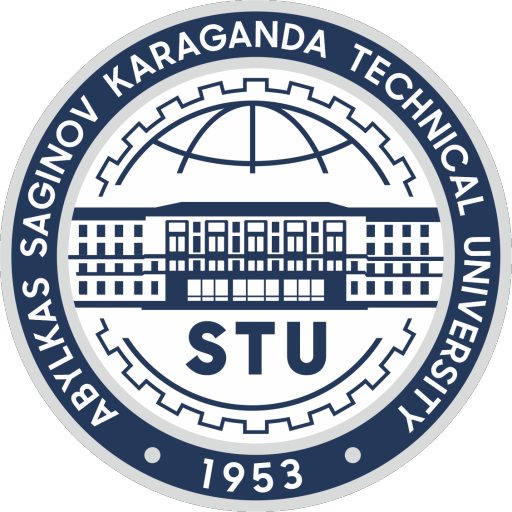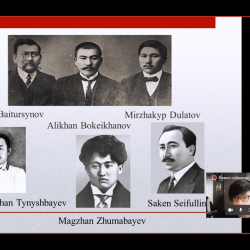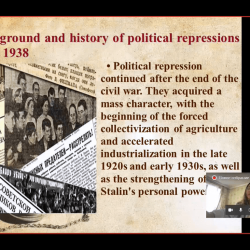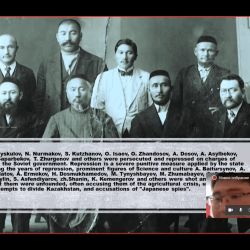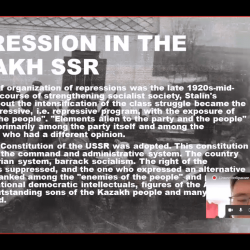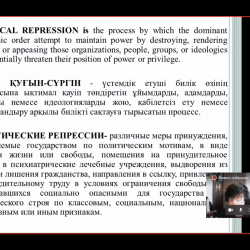The event was held online in Microsoft Teams, where more than 60 students, as well as teaching staff of the Department of Foreign Languages, took part.
At the very beginning, the teachers of the Foreign Language Department made a welcoming speech and the hosts announced the goals and plan for the event.
The aim of this educational event is to form and strengthen knowledge about political situation in Kazakhstan in the period of 1920-40. Objectives are:
- To give an idea of the negative essence of the complex political processes of Soviet power in the 1920-30s. To enable the students to deepen their knowledge of the complex political processes, to help them develop their own assessment of the events.
- To promote the formation of skills of independent learning activities, work with additional literature and sources.
- To foster in students an attitude towards freedom as the highest achievement of the human spirit and modern culture.
The following questions were discussed:
- Definition and nature of political repressions, their reasons and consequences;
- Statistics showing the numeral and percentage data about victims of political repression;
- GULAG: labour camps: KarLag, ALZHIR;
- Punitive bodies and ways of penalties used during the political repressions;
- AlashOrda: the party’s educational activities, reasons of their being repressed;
- M.Zhumabayev, A.Baitursynov, M.Dulatov: their role and contribution to the nation`s development, years of repression;
- About the rehabilitation of political repressions` victims: the law adopted in 1993, the process of rehabilitation;
Every year since 1997 Kazakhstan celebrates the Day of Remembrance of victims of one of the most tragic pages of the history of Kazakhstan – mass political repressions and the terrible famine of 1931-1933, which caused the death of millions of people. Since 1997 every year Kazakhstan people have remembered all the people who were subjected to repression by the authorities in the country and abroad; they have remembered their relatives and friends who never returned from the camps or died of starvation; they have remembered the millions of people who by the will of fate were on Kazakh soil during the deportation. Remembering that terrible time, every resident of Kazakhstan should be aware of the scale of the tragedy and its consequences for the history of our country.
Responsible for the event teachers of the Department of Foreign Languages: Head of the Department of Foreign Languages, candidate of pedagogical sciences, associate professor Jantasova Damira Dulatovna, responsible for the social-educational work of the department Isina N.T., teachers of FL department: Amangeldina G.A., Tokumabayeva A.A.
